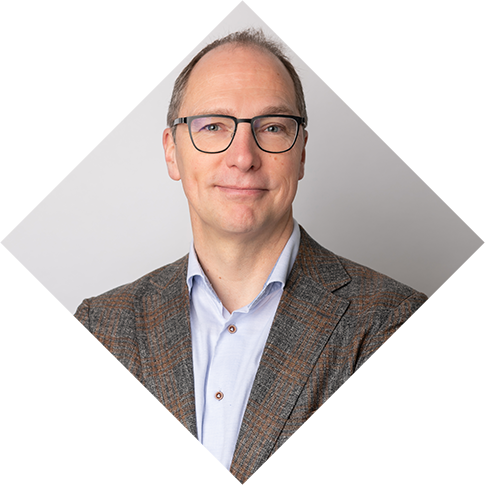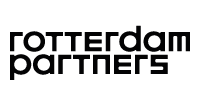Category: Innovation Infrastructure
BlueCity: circular playground with balls
‘A playground where circular entrepreneurs with brains, balls, guts and fun are driving towards a future where there is no waste.’ This is how BlueCity describes itself on their website. BlueCity has been around for approximately 4 years. Four years in which the initators have experienced many highs and lows. One thing is clear. The BlueCity people have balls. As well as brains, vision, guts and fun…
BlueCity started with a group of entrepreneurs which in its turn arose from an initiative by RotterZwam. In 2015 they made an appeal to other entrepreneurs to create an ecosystem together and to start work on a business case for the former tropical swimming paradise Tropicana, at the Maasboulevard in Rotterdam. Several entrepreneurs responded including Okke Hout, who was already in the Tropicana premises, an investor and a project developer. Ideas and dreams quickly developed into a concrete plan of attack. October of that year saw a major development: the entrepreneurs officially acquired the building and BlueCity became reality.
A lot of help
“Well, actually it wasn’t quite that simple” Sabine Biesheuvel, one of the co-founders and now director at BlueCity counters.
“From the start we had to cope with many uncertainties and risks. That is true for us, the interested investors and for the municipality who, from day one proved to be really helpful and positive in turning BlueCity into reality.” Finding the much needed starting capital was also challenging. Who wants to invest in something that most people don’t know anything about and which hasn’t been done before? “We were very lucky that we found just such an investor in Rotterdam, who values social impact as much as return in euros. An impact investor named the ifund Foundation. They have really helped in getting BlueCity off the ground.”
Waste is something created by humans
Waste doesn’t just exist naturally, it is created by humans. Nature doesn’t know waste, it produces nutrients, energy and matter. These by-products and residuals are in themselves the basis for other materials, products and processes. This way a chain is formed where everything is connected. This is the core principle of the ‘blue economy’ and the heart of what BlueCity is about.
“We don’t judge the old system, we are working to create a new, better system.”
Concrete circular examples in BlueCity
The entrepreneurs in BlueCity are aspiring for a waste-free chain of production and consumption. Residues that originate from one production process, form base materials for the next. Hard to imagine? It’s really not that complex. Concrete examples are easily found in BlueCity. RotterZwam grows mushrooms using coffee grinds from the Aloha Bar. CO2 that is formed during this process can be used by Spireaux for creating spirulina, which is a base ingredient for veggie food products. The beer wort of brewer Vet&Lazy is ued to cultivate bioplastics. And the mushrooms of RotterZwam? These have been tested in a special ale by Vet&Lazy. We could go on and mention many more examples… The people at BlueCity don’t have the illusion that they will replace existing economic systems by a new one. They are well aware that these things take time and that they are a frontrunner in what will be a long process. The building and its transformation are actually an innovative means to an end for the BlueCity collective. “We are sort of a bizarre stimulus, needed for creating awareness and for showing that change is possible and needed. And we have a business case. We don’t judge the old system. Together with our business partners and from our conviction and drive we are working to create a new, better one. It is our goal to bring as many positive alternatives to market as possible. The Rotterdam way: through entrepreneurship and just going ahead and doing things!”
Sabine believes that the success of BlueCity is for a large part also the success of the Rotterdam entrepreneurial climate. “It’s so easy for young entrepreneurs to get started in Rotterdam. This city offers easy access to various relevant networks, such as R’damse Nieuwe, a network of young innovators and entrepreneurs in Rotterdam. And it’s really easy to get help from fellow entrepreneurs, Rotterdam has an atmosphere of togetherness, of helping one another. It’s also a good thing that the municipality really values innovations and cooperates. They helped us getting setup in Tropicana and Rotterdam Partners helped us get some much needed exposure for our initiative.”
Business case
Every now and then Sabine is met with scepticism when talking about BlueCity. “I’d rather call that ignorance. Some people think that we are a bunch of vague do-gooders who are just sitting and doing weird things in an old swimming pool. That’s so not the case! We have a strong business case for BlueCity. All entrepreneurs pay rent to be here and to do their thing. We also organize design and business development projects with companies and we do events to get income from those. This way we also contribute to the local economy. Take the Fuckup Nights for example, where people tell their stories about their mistakes and failures. Entrepreneurs can take a lot from those stories and experiences. And we organize a lot more. We do these things because we want to contribute to the local innovation scene and culture.”
Ambitions
A circular city within the city. That’s a good way of describing BlueCity. So how far do their ambitions go? “We want to accomplish a lot. Currently we are busy developing a conference facility that can take 1,000 persons. For our own events but also for external parties. We are also working on a laboratory for bio based product development next to our current workshop, a pop-up space for new initiatives. And we are developing circular ‘short stay’ houses… There’s a lot going on. I think BlueCity will remain an iconic pivot and sort of a trademark for circularity in the city. But our ambitions extend beyond the borders of these premises. We are working on the business case for a location for disassembly of large scale buildings in Rotterdam. We want to explore options for repurposing materials that come from those demolitions. The other way around, there’s also a lot to gain with respect to the circular and sustainable design of new buildings. More often than not, no thought is put into for instance VFG-waste of the people who will be living or working there, which could of course be reused.”
“BlueCity will remain an iconic pivot and a trademark for circularity in the city.”
Mentality
BlueCity is more than just an exemplary circularity hotspot. Its inhabitants really want to contribute to an increase in awareness and a behavioural and mentality change. “It’s important that people become more conscious of their behaviour and that the dynamics between people and products change. We mustn’t just take, we have to become a part of the whole chain of production and consumption and understand what this means to our ecosystems. I feel that for this, Rotterdam is the right place to be. It’s the city that’s at the start of energy transition and climate adaptation, a city that recognizes opportunities. People here are open to new ideas and voices and appreciate the power of collaboration. That’s a really important starting point, one which will certainly help us along the line.”
BlueCity entrepreneur: Vet&Lazy
One of the entrepreneurs based at BlueCity is local beer brewer Vet&Lazy (vet is the Dutch word for fat, ed.). The company originated as a home based ‘hobby brewer’ with the only aim of just making cool and great flavours. It has since grown into a professional brewer which you can find in the basement of BlueCity. Vet&Lazy produced some 3,000-4,000 liters per month, partly in its BlueCity brewery, partly at an external location. Soon you will be able to buy some of Vet&Lazy’s beers at the AH stores in Rotterdam. Ruben Krommenhoek, the founder of Vet&Lazy feels righ t at home at BlueCity. “In the beginning it was quite tricky to be part of the whole circular process. You can’t put just anything into beer. But now it’s a challenge for me to see how I can create new types and flavours using the residual materials that I take from BlueCity. For example, we have already used mushrooms, coffee, ginger and mango. And I also contribute to the circular chain: our beer wort is used by others for growing bioplastics, and for making cookies and muesli type products. We’re trying to not let anything go to waste. That’s a good thing, right?” Ruben has the typical Rotterdam sense of humour, which is evidenced by his beers. Le Phallus (name speaks for itself), Dubbel Wit Zomerfit (pun and rhyme about beer relating to being fit), Je Moeder (Your Mother)… “Customers apparently like to say, when a barman asks them what they want to have: “I’ll have Your Mother!”
This article originates from: RotterdamPartners.nl
Interested in tuning in your circular business to the Blue City community?
We are happy to get you in touch with the right people!











